#Olmec Bark
Explore tagged Tumblr posts
Note
Waffle: *hisses!* MEOW! *they jump into the Void droid once it stumbles by and starts ATTACKING the grubs! swatting them like a cat! VERY angy! they also bark at the grubs! you'd ALSO swear the kid's getting BIGGER!? and a silent but ever growing LOUDER cracking sound can be heard from'em? Notebuster- ya might wanna- uh GET INVOLVED- *
Notebuster pries Waffle off of The Voiddroid before saying, in his real voice, "Let me handle this."
Firefly moves out of the way so Notebuster can observe and help more properly
Pester, thankfully, was unharmed. They look at Notebuster and, in the tiniest voice you can imagine, says "please don't hurt me. I'm aware!"
Notebuster pats Pester with a single finger, before summoning a small pink void crystal to put all the non-sapient Hitchhiker Grubs on, plucking them off of Olmec and Stinger, and making sure Aych didn't have any extras on her. After it is all settled, Notebuster gets a better look at Pester. "I heard all Void Fauna had a chance of Hyperintelligence, but I did not realize it extended to even the bugs." his speaker spoke for him.
"I didn't either till they begged me to not pluck them off at my stop near the carnivorous fields." Aych admits
Pester says nothing and just goes back to being comfy in Aych's head feathers.
"Intriguing." Notebuster's screen spoke. "I think I can keep these others as pets. Mom would like having some home around. It would be too dangerous to put a pink void crystal back into the void nowadays, anyways."
#jax#oc roleplay#notebuster#the voiddroid collective#firefly the windchime squid (a void creature)#stinger the monstera mimic (a void creature)#olmec the ground bound kei (a void creature)#aych the winged kei (a void creature)#pester the hitchhiker grub (a void creature)
0 notes
Note
why does the Popol Vuh claims that the Olmec came to Mexico in “ships of bark”, is it lying?
I’m curious about your source of information. Where in the Popol Vuh does it say the Olmec came to Mexico in ships of bark? Or that they traveled from the east?
Literal version,
http://www.mesoweb.com/publications/Christenson/PV-Literal.pdf
More narrative version,
http://www.personal.psu.edu/abl128/PopolVu/PopolVuh.pdf
Perhaps you are thinking of instead their oral history saying their ancestors, Maya not Olmec, came from a city to the east. But that means they were coming from Yucatan and crossing the sea near the Isthmus of Tehuantepec. And their ancestors would not have been so ancient. They were likely people from Chichen Itza or Mayapan.
23 notes
·
View notes
Text
retirement-home
Undergrowth seeking The sun is setting, and the sky is beginning to turn orange as it begins to set in your eyes shelter from the rain Lightpoles of light shine through the trees, illuminating the ground below Lightpoles of light shine through the trees, Construction drama all around Accustomed to the shadows, willow adepts hold hands in a circle, chanting Robert chats with Féval père Construction drama all around Green-skinned bodyguards adorned in leather and denim stand on either side of the gourmand saurus, his pupils dilated… Let's just get to it! Green-skinned bodyguards adorned in leather and denim stand on either side of the gourmand saurus, Bandages dirtied with mud and blood The gnome seems pale Conscious, if just barely Bandages dirtied with mud and blood Monitors beep alarms His fists ball up as a jolt of lightning runs through his body "Where am I? "Naledi Monitors beep alarms Vaccine enters the patient's body through his veins Your nostrils flare, smelling the thick scent of diesel, grease and rubber Vaccine enters the patient's body through his veins Shocktroops prepare grenades as a leutnant barks orders at them Shocktroops prepare grenades as a leutnant barks orders at them Pharmaceuticals Midrim Limited, owned by the Regime and helmed by Captain Rimanika Pharmaceuticals Midrim Limited, High-roller midbite owners, books and casinos owned by the Regime High-roller midbite owners, Lizards gamblers and thrill-seekers from all over Confederacy space Lizards, Gorazel and his blood-manipulating magic Miguel ineptly fumbles with trigger, as you teach him the ways of warfare Gorazel and his blood-manipulating magic Cyber-surgeon Professor Mberupekwe Mbara works tirelessly on the wounded Nurses and orderlies taking small breaks from the chaos overtake the hospital Cyber-surgeon Professor Mberupekwe Mbara works tirelessly on the wounded Lieutenant Krozer is here! Agent walking slowly over to the pot of coffee, pouring some for him and you "Boss Agent walking slowly over to the pot of coffee, Borders, barriers, segregations Agent stretching turning back to the room Big L salute; you return it "The Moonracer was a success! Agent stretching, Blood baths The blood seeping from his chest to the cracks in the concrete floor General Ecker's last stand Bloodbaths Agent caregiving Sedated forever, locked in a coffin of steel and glass Naked but for plastic curtains separating them Dog -eared copies of Green Genetics | The Choice of Progress, and Why Monarchy is Evil propped up in their hands Dog-eared copies of Green Genetics | The Choice of Progress, Agent cheese-making Abomination, barely even human NASA stickers still visible, turquoise and dull yellow against the rusted metal exterior of the machine Agent roving His head rises, as if sticking his neck out Will you approve or decline his offer? Cyclone of emotions in a heartbeat Lion's roar burning a whole through everything Agent well-being His mighty paw clutching an Uzi short shotgun Albino cobra, hood fully expanded as it prepares to strike Agent coping Pulse quickening as adrenaline surges, burning through you Do you recognize these feelings? Agent catalyzing Blackness, pierced by the wailing of a mother Young soldiers scramble, dropping their food to draw their various firearms Agent landscaping His groan is a presage of the pain you're about to unleash upon him Sergeant peers through the periscope, whistles Agent mistreating Something clatters to the floor The stare of wounded soldier, waiting for the final blow The sickening crunch of splintering bones Agent diagnosing Seeing the world through a foggy camera lens Invaders, enslavers, slaughterers Agent stroking Soldier stiffening as the electricity tears through him Agent portraying Urgency so thick you can taste it, adrenaline pumping into your veins Everyone thinks you're a monster, because that's what I wanted Agent evoking Night-sky, lit up by the blast You miss the battlefield Agent photographing Explosion of emotions from the dying soldier Agent handicapping Sergeant bellows, high-caliber bullets tearing through the air Agent joking A gurgling laugh escapes your own throat as the knife cleaves through his frontal armor Agent giving orders Agent brushing off excess dirt One foot after the other, none of them stepping too harshly Aloof and unaffected by the future Sundowning setting apocalypse into slow motion Agent acediology The soldier's finger pulls the trigger, but the gun fails to fire Sanitation of body and soul Synapses in the brain misfiring, leading to sleep Colossus rising; fortress of solitude The smell of fresh blood and vomit churning in your gut Regression into infantile fantasy as a shield from bloodshed Community-dwelling tribal warfare Epinephrin rushes, adrenaline pulsing Great gear overflowing from bookbags and lockers, assault rifle peeking out the top Muckety-mucks hoping that your psych eval comes back positive Shuffling of papers and murmuring of hushed voices Bare mattress and worn-down carpet Ribbon-cutting for the new healing wing Helicopter blades whirring overhead Anxiety burning in your chest, despite the smiles you put on Balloons and mini-birthday cakes under halogen lights, a celebration of fifteen years since the Cure Sensawunda! Grooming Torn-out page of the Kama Sutra, hidden behind a biology book and attire for your next pageant Skinnys the newest substance replacing alcohol and tobacco A blue card, redeemable for one cured child's organs Counseling sessions to discuss death, over and over again Motherload of narcotics and psychotropic drugs seized by Delta Company Never-ending remorse, shaking hands Eating contests and wet T-shirt contests, barf bags at the ready Your system cleansed of toxins, feeling invigorated Whisky-joint -basketball-throwdown! Dwelling in darkness as your world crumbles around you Terrorist organizations pledging alliance, chaotic guerrilla strikes and bombings Sodbuster besieged by nightmares of bloody, doomed civil war CSI sorting through the wreckage, pointing fingers Sleeping Fortress America, gateway to the world the sleep of the righteous, night after night Your personnel records expurgated for reasons of national security Mini-chainsaw carved from a battered hunk of meat, abandoned A torrent of memories and birth identifications 26 undergraduates, dead and taken off line Astryl sifts through evidence and admonishes you A spent casing rolling under a bookcase The family silver, tarnished Toothpaste and nail clippers, procured at the last ration station Fighting over a cracked compact mirror Shambles that was once an infant, swollen several times natural size CSI measures every cubit and indices every blackboard scrawl Wet-nurse standing before you, blubber pouring from eye sockets like tears Towering, irate figure promising freedom in flesh and machinery beating in unison Chatters chmidtchild mp3 plays faintly while in your pocket Hegemony and valor bleeding into the unknown Passageways twist and turn as you hunt, quietly Rot increases as putrid steam billows into frigid air Admission collected to raise hitman Body buried two thousand feet below Rotting, empty eye socket watches you with a mixture of hope and lust Weakness-magnets each pulling in a different direction, tearing the collective apart from within Homelike prison, built to hold the worst that humanity has to offer Mausoleum awaits, made from the destruction of your aspirations Cafffeine -fueled hyper-articulate poetry from shouting voices and violence The only certainty Gerontologist calm and collected as you lie in wait Sitting in your drafty crypt as rot spreads, eating at hopes and dreams Tumblebleeds yourself away, forever stumbling forward into the future The vague threat of terrorism franctically expended to fill time and distract Cognizance truncated by drugs injected at birth Consciousness smashed to bits against the grinding wheels of this atrocious hamster wheel Gusts of bloodthirsty elation in battle The distant echo of gunfire somewhere outside of this citadel Life-prolonging machine breathing for you in bursts A sewer connecting one locus of despair to the other Surgeries leaving you disfigured and without certain organs Mild satisfaction brought on by contribution of articles to sub-standard news organ Sports and reality shows to forget your sorrows, if only for a moment Addled brains desperately searching for truth, wisdom, decency Mousehole to escape when craggy reality becomes too much to bear Immortal ruler of fables and nursery rhymes Resurrection ists stripping the flesh from your bones for money The disease spreading rampantly, claiming youthful lives Harmonica haunting you through the prison corridors All trials leading back to the supernatural Detached shoulder pulsating microphone stand, choir of shrieks and howls Mattresses embroidered with nursery rhymes, sweet lullabies for the wicked Booty in bottles of shine and bags of pdevices Blood-soaked urchin armies waging gangland warfare over crackhouses Rusted-out trash barrel fires and rats the size of ponies Rotting meat smell of dead bodies left uncovered in the streets Phosphorus searchlights ripping through your being Alleys and allies twisting in an eccentric patterns, never straight for more than a few cubits Automaton driven to find the killer of his beloved Selma Hellfire and brimstone preachers bringing morality to the masses Megalomaniac al omnipotent entity demanding sacrifice after sacrifice The ghostly echo of the apocalypse in bottomless silos Dust to dust, pain to pain, doom to doom Eternal life seems like nothing more than a fever dream now Patriots raving in a static-ridden anarchy Heaven's goblins, led by the fiddler and the lean man Adrenaline -charged duels and gunfights along dead-end streets Grease-stained gambling and long, lingering bartabs Conquistadors hacking and flaming their way through jungles Olmec colossal heads commandeered by Jolly Ranchers and liquor Gangrenous and necrotic plague victims emitting the smell of rot and mildew Anxiety-relieving pills to avoid the toxicity of Mankind Forever! Faucet dripping, wall crumbling, the sounds of the night Sidewalks carved into and stepped pyramids for the peasants Prophecy foretold of the coming goblin and fanatic followers Zombie hordes bottle-necked by lack of open doors Triangulation of the blood, splattered brains, and rusted-out metal Pirates jettisoning stolen treasure into the depths Preachings of the end of days to doomed desert travelers A dead man and his broken slaver Cataclysmic beams of lightning crashing down from the heavens Corrosion eating away at all metals save for one Rebel alliances exploding within themselves Soapbox oratory drawing all eyes to one man Bloated King feasting on the misery of his subjects Moisture Oily machinery, water buffaloes, and steaming rice paddies clumps silently in the darkness Sermons prophesying the Day of the Dead and All Souls' Rotten, rusted-out hulks of abandoned machinery Lobotomize the rabid, pot-smoking college students Skeletal pirates prowling the night in search of plunder and rum Delivery rooms for freshly killed virgins and babies Toothbrushes being given away for free with student IDs Bleach-white political propaganda exhorting the virtues of community Talisman swelling with power and striking terror into all Bleeding-edge technology much more efficient than it should be Making candy bars out of human flesh Stinky skin conditioners and vomiting hair tonics Stacks of ludicrously cheap VHS tapes A language that, while vitally important, nobody speaks Insecticide miners and natural poison barrels Ancient, decaying albums full of Jimi Hendrix, John Lennon and Bob Marley Oozes and oozes of all types Eternal stains on hotel carpets Life and death decided by rusted dice Newspapers overflowing with conspiracy theories and scandals Lacquer cabinets cascading over with rum bottles Static-laden, monotonous radio broadcasters Diplomats scrambling for crumbs Slick-talking, well-read merchants pontificating on high culture Jocks and preps in backwards hats beating the crap out of goths Obsolete mines and anachronistic technologies Eskiminzins melting Greenland's ice caps Grave robbers pilfering priceless cadavers for medical research Physique gyms pumping man-musk Obsequious Elvin slaves functioning as doctors Ken-doll politicians spewing empty promises Garden-variety chemical-resistant weeds A colony of subterranean mole people Burrowing owlbears tearing through the soil Chemicals from a bygone age destroying the state of things Alsation-trained debt collectors Designers pumping out "new" clothing every year Complacent monks devoting their lives to an unattainable end Anatomy books used by future doctors Kooky 14-year-old leaders taking over the reins of power Ancient government overthrown in a popular revolution Populations of the future spreading to and inhabiting other planets Armadillo-like future robots armed with lasers and other weapons of mass destruction Coffee -flavored coffee Tabloid newspapers with photographs and moving pictures A foreign language that sounds vaguely French Hoppers skittering about Stank-hole criminals hiding away with their ill-gotten loot Sealed reliquaries containing the bones of saints Livers mooth and shiny robot butlers incapable of independent thought Cowardly "soldiers" using ricin-filled bullets Nobility hiring mercenaries to fight their wars for them Sand-filled hourglasses constantly running out Vicinity -enforcement licenses that keep you always nearby Automated tellers constantly loaning you money that you must pay back with interest Vitamins found only in the intestines of humans Grading people for social norms, beauty, and other variables Silent sports with no fans Scorpions and vultures literally fought to the death Helpless slaves in thrall to fat masters Former citizens building communities up from nothing Watermelons that actually melt inside you Dumpster -diving universities for the poor and destitute Prisons filling with both criminals and political opponents Bravado -loaded mercenaries attempting to recapture lost territory Silently suffocating hotel guests Dune buggies full of different types of the undead Librarians marching for work arrangement reform Apocalypse-weave guns stuffed with holy water bullets Trees were extremely rare before the event Occupations concerning themselves only with business and money Spit-and-polish military coups Scamps and vagabonds eking out an existence through thievery Psychopathic laughter issuing constantly from a person's mouth Super-soldiers made with oil and other biological matter Protests over dead refugees from the war Distributed battle armor of the type you currently wear Teetotaler ghettos spawning intolerance on both sides Highly vented helmets trickling clouds of poison gas Zoologist savages attempting to re-mold humans into new shapes and sizes Many undead werewolves with a taste for human flesh snacks Lizard-on-a-stick Galaxy far, far away Endoskeleton and useless attachments such as wings and shark teeth Bagpipes full of infectious black mold spores Bullying protests targeting video game studios Phenotype -altering illnesses altering lupine sydnrome Tiny toy hunting knives carve "V" for victory symbols Moreauvian stumbles into a mundane trap Kleptomaniac youth exposing their treasures Toxic foam pool cleaner When it comes to entering the earth on must do it very precisly and carefully You need to enter the air at a precise speed and angle so that you don't get burned up in the atmosphere or skip out into space to your destruction If you return too fast or too steeply bad things will happen If you pause too long in outer space, your body will absorb enough solar energy to burn you up when you next descend If impact is to shallow then back you go back into space to be frozen preserved and released half a millennium before others of your kind Too deep and the brutal forces will crush your life away The three requirements deceleration heating accuracy of landing or impact Most of your descent is burn monotony You will need to float the egg in some liquid so you will need to find some liquid that is the same as egg so you can select the best and choose the one that do not flow the liquid However, everything is possible, you can refill of "fuel" The container will need to be rigid to make sure that the walls do not flex or the egg could bang on the walls of the container and crack and if you place a shell inside then this could bounce or deform with pressure and scratch the egg on roughness of inner surface An egg can withstand between 20 to 30 gs before cracking so the landing should not be an issue from that perspective This is why you have kept this as plan B You start saying some thing "how much further should reach the outer layers soon don't want to rush things too much though Straining your neck looking up you try to see the sky Sort of like day dreaming or some thing You start to wonder what your landing will be like Some say hitting water is like landing on solid ground
0 notes
Text
The Brutal History of Ball Game by Steven
This is Steven and here is a new blog. And today I will be talking a lot lot and lot about an ball game. Don’t worry! It is not too boring so be excited. Anyway, this blog is going to tell you specifically about Mesoamerican ball game.

Opps, not the the pin ball game. Sadly :(
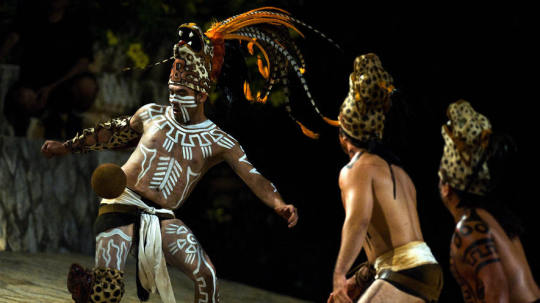
The harsh Ball Game of the Mesoamerican. So let get started! The Olmecs was the one who started this game around 1500 B.C. The Maya around A.D. 700, tweaked it. Finally the Aztecs around A.D. 1400, nailed it. So these are people or tribes are part of this region; we don’t have the Inca included though. So this is a game that need a very solid rubber ball that weigh about 10 pounds, 1 to 4 people on a team and they would play it on a stone court. And people need to wear protections like helmets, pads and thick belts. We are still not sure about the rules of this game but basically it’s just keep the ball from dropping to the ground with your hips. Almost like volleyball without nets. Would you think this ball is heavy and you have to don’t let the ball touch the ground? It will HURT a lot! So how did this game started? The Mesoamerican ball game began in an area where the Castilla elastica tree grew. There will be a milky-white latex that would be dripping by cutting a thin line in the bark. The liquid would drip out into a cup and be mixed with juice from a white morning glory flower to create a rubbery latex. Then it will shaped into a ball and hardened.
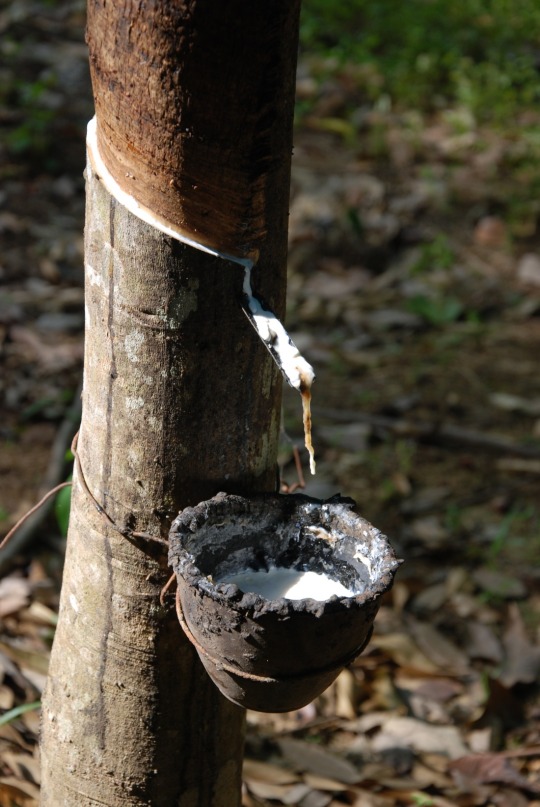
Now we understand how is this ball made, let move on to how this affect to these Mesoamerican life. It has been included in tombs and at religious shrines. The game was associated with prestige and social standing, and only the wealthy people can actually afford to play this game. So the Olmecs continue to play this game and then the Mayans start to added some more things in it. So first of all, they believe this game make the gods happy. If you lost in this game at that time, you will be DEAD! You will be sacrifice and normally they will cut off your head. This game can even replace a war that was about to start, instead of fighting in the war you can join this game. The Mayans also added a ring for anyone in the game to who wanted to get a bonus point.
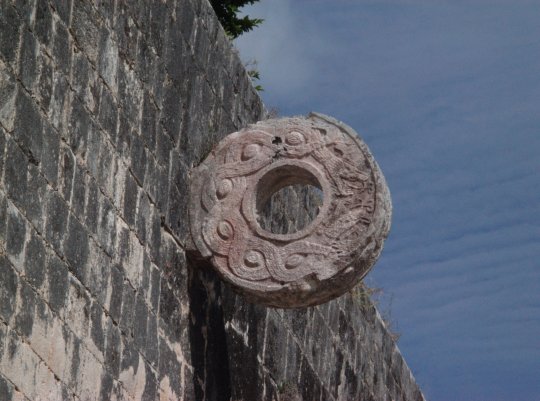
The Aztecs was interested with all of these new things. They have many vases and sculptures show the death of the losing team. Some of The Spanish watch the game and I rather not to play this game. Because The Spanish reported that the game could cause tons of injuries. Deep swollen bruises, broken bones and even death when a player was hit in the head or an unprotected area by the heavy ball are examples of bad things it could happen to you. Now that very brutal and scary! Even though it has a lot injuries, we still have people playing this game in the world. A slightly less violent version of the game is called Ulama and it is played in Mexico.
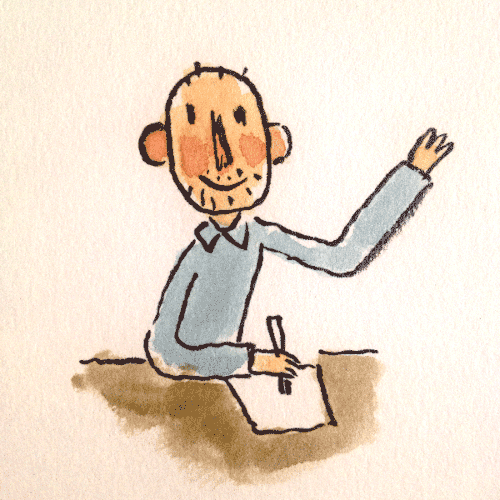
The end of this blog is here BYE! Wait for more blogs.
0 notes
Text
The Ancient Maya Empire: It Flourished and Mysteriously Ended by Alyssa.
Hiiiiiiii, welcomeee backkk to anotherr blogg!! It's me, Alyssa :))

So... today im going to talk about The ancient of the Maya empire. This article is about the Maya empire flourished and mysteriously ended. Let’s get started!!!
The Maya Empire was centered in what is now Guatemala. The Maya excelled at agriculture, pottery, writing, calendar-making and mathematics. They left behind an astonishing amount of amazing artwork and architecture.
So as you guys may know or not know yet, Mesoamerica is a term used to describe Mexico and Central America before the Spanish conquered the region in the 16th century. The Maya civilization was one of the most dominant societies of Mesoamerica. It covered parts of Mexico, Guatemala, Belize, Honduras, and El Salvador. The Maya lived in three separate sub-areas. They built the great stone cities and monuments that have fascinated explores and scholars worldwide.
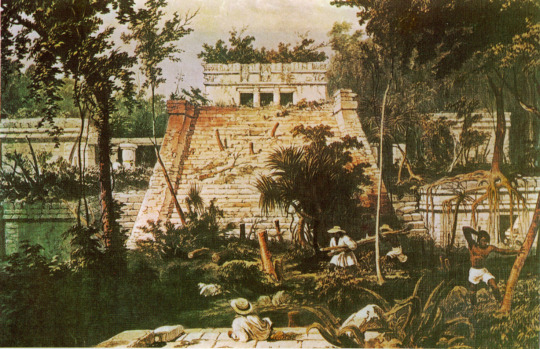
Maya farmers were very successful. The earliest Maya settlements date to around 1800 B.C, the beginning of what is called the Preclassic or Formative Period. They grew crops such as corn, beans, squash and cassava. The Maya borrowed a number of religious and cultural traits from the Olmec, including their number system and famous calendar. In addition to agriculture, the Preclassic Maya also displayed more advanced cultural traits.They built pyramids and cities and inscribed stone monuments.
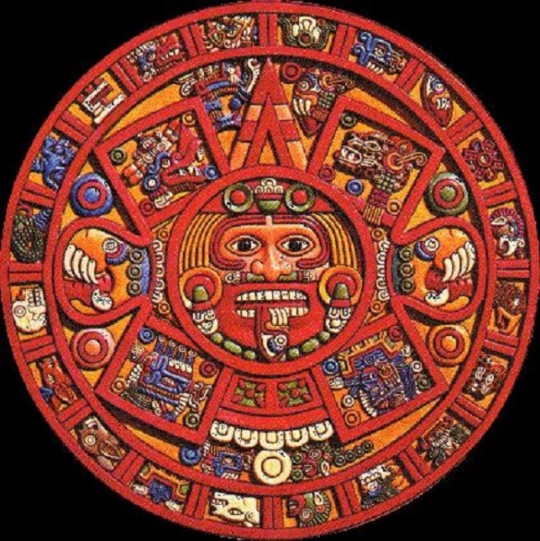
Religion played a big role in their society. The Classic Period began around A.D 250. It was the golden age of the Maya Empire. Classic Maya civilization grew to about 40 cities. The Maya population may have reached 2 million. Maya cities were surrounded and supported by a large population of farmers. The Maya were deeply religious. They worshiped various gods related to nature. The classic Maya built many of their temples and palaces in a stepped pyramid shape. They were the first to use the number zero. They also developed a complex calendar based on 365 days. For the early paper and books, the Maya also made paper from tree bark and wrote in books made from this paper. The Maya took the advantage of the area’s many natural resources, including limestones, salt, and the volcanic rock obsidian for tools and weapons.
Overall, for me, the Maya empire is a powerful empire because they developed lots of stuff that people use now like paper, books, calendars, tools, weapons and much more. The Maya didn't just disappear because several million descendants are still alive today.
So that's all for today, see you guys in the next blog =))) byeeeeeeee

0 notes